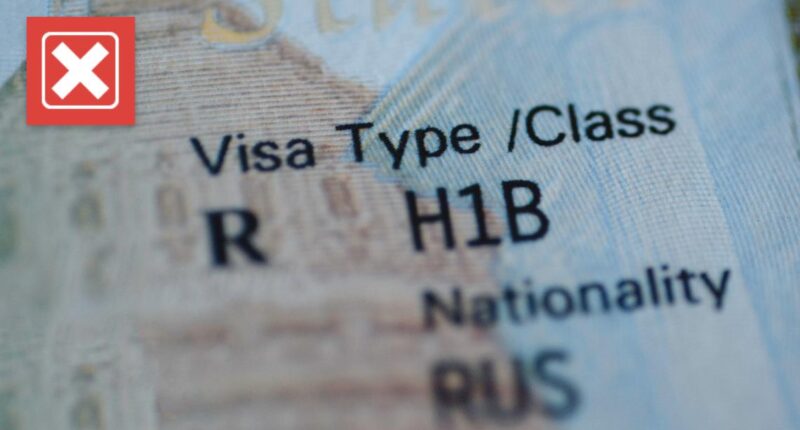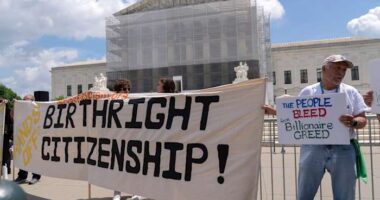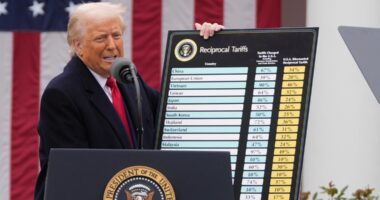Although unionizing is a right protected by law, there are situations where employers may still choose to retaliate against workers who exercise this right. This has the potential to make H-1B visa holders more cautious, as their legal status in the United States is directly tied to their employer.
During his presidential campaign, Donald Trump was known for his anti-immigrant stance, which included controversial proposals like mass deportations of undocumented individuals. After his election, some of his supporters directed hostility towards foreign workers and immigrants who were legally residing in the country.
By the end of December 2024, several prominent figures in the tech industry who were known allies of Trump, such as Elon Musk and Vivek Ramaswamy, voiced their backing for H-1B visas. These visas are temporary permits that allow foreign individuals with specialized skills, particularly in fields like technology and medicine, to work in the United States.
Some opponents of the H-1B program claimed that tech billionaires support H-1B because it allows them to provide lower salaries and fewer workplace rights than they could for American workers. One viral post claimed that workers on H-1B visas have no collective bargaining rights, meaning they can’t join or form unions.
THE QUESTION
Are workers on H-1B visas barred from joining unions?
THE SOURCES
THE ANSWER
No, workers on H-1B visas are not barred from joining unions.
WHAT WE FOUND
The H-1B visa program allows American businesses to hire highly skilled foreign workers for “specialty occupations” that require at least a bachelor’s degree, such as jobs in mathematics, engineering, technology and medicine, the American Immigration Council says.
An H-1B visa is valid for three years and may be extended for an additional three years. Congress sets a cap on the total number of new H-1B visas issued each year.
H-1B visas are sponsored by the employer that wants to hire the worker. The worker will lose their visa and permission to remain in the United States if they stop working for the business that sponsored them, unless another employer takes over sponsorship of the visa and hires the worker. H-1B visas do not grant a worker blanket permission to work in the United States.
Most workers in the United States have the legal right to unionize. For many, that right is guaranteed by the National Labor Relations Act and protected by the National Labor Relations Board (NLRB).
The NLRB says it protects workers’ rights regardless of citizenship. That means noncitizens on work visas, such as H-1B visas, have the same right to unionize as U.S. citizens do.
U.S. law prohibits employers from retaliating against workers, including immigrant workers, for trying to form or join unions, according to the Worker Organizing Resource and Knowledge Center. However, the NLRB exists to protect these rights because some employers retaliate against unionizing workers anyway.
A unionizing U.S. citizen might lose their job or face some other retaliation from their employer, but would not face any legal hurdles in applying for jobs at other companies. But workers on H-1B visas do not have the same flexibility because their legal status in the U.S. is tied to their continued work for their sponsoring employer.
Temporary workers, such as those with H-1B visas, can be hesitant to report workplace violations “because they fear removal or other immigration-related retaliation due to reports by an abusive employer,” the U.S. Department of Homeland Security (DHS) says.
“It is often the case that H-1B employees are afraid to confront their employers when they feel their wages are being withheld or when they feel they are being treated unfairly. Many are worried about losing their job and their legal status in the U.S.,” Zhang & Associates, P.C., an immigration law firm, says. “In many instances, these H-1B workers might prefer to find a new job and have their new employer transfer their H-1B status under the portability rule, rather than complain to DOL.”
If a worker on an H-1B visa loses their job, they have a 60-day “grace period” where they can remain in the U.S. and potentially change their immigration status or find a new employer to sponsor their visa, U.S. Citizenship and Immigration Services (USCIS) says.
If the temporary worker’s employer is being investigated by a labor agency, they may be able to receive temporary protection from removal and a temporary work permit, the U.S. State Department says.
So workers on H-1B visas have collective bargaining rights, similar to American citizens in the workforce, and do have some protections from retaliation if they report their employer has violated those rights. But many such workers are afraid to rely on such protections, and might therefore be more easily dissuaded from joining unions.

















